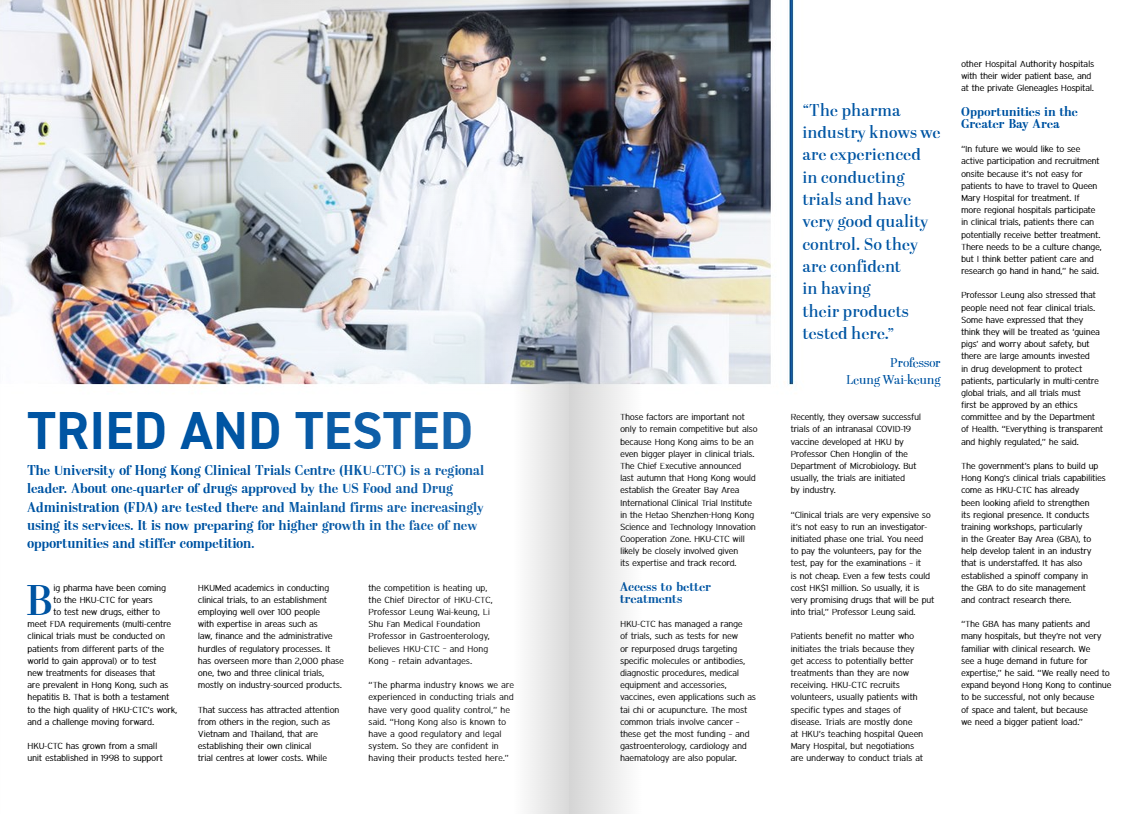[HKU-CTC Public Education Series] Study Intervention
19/11/2024

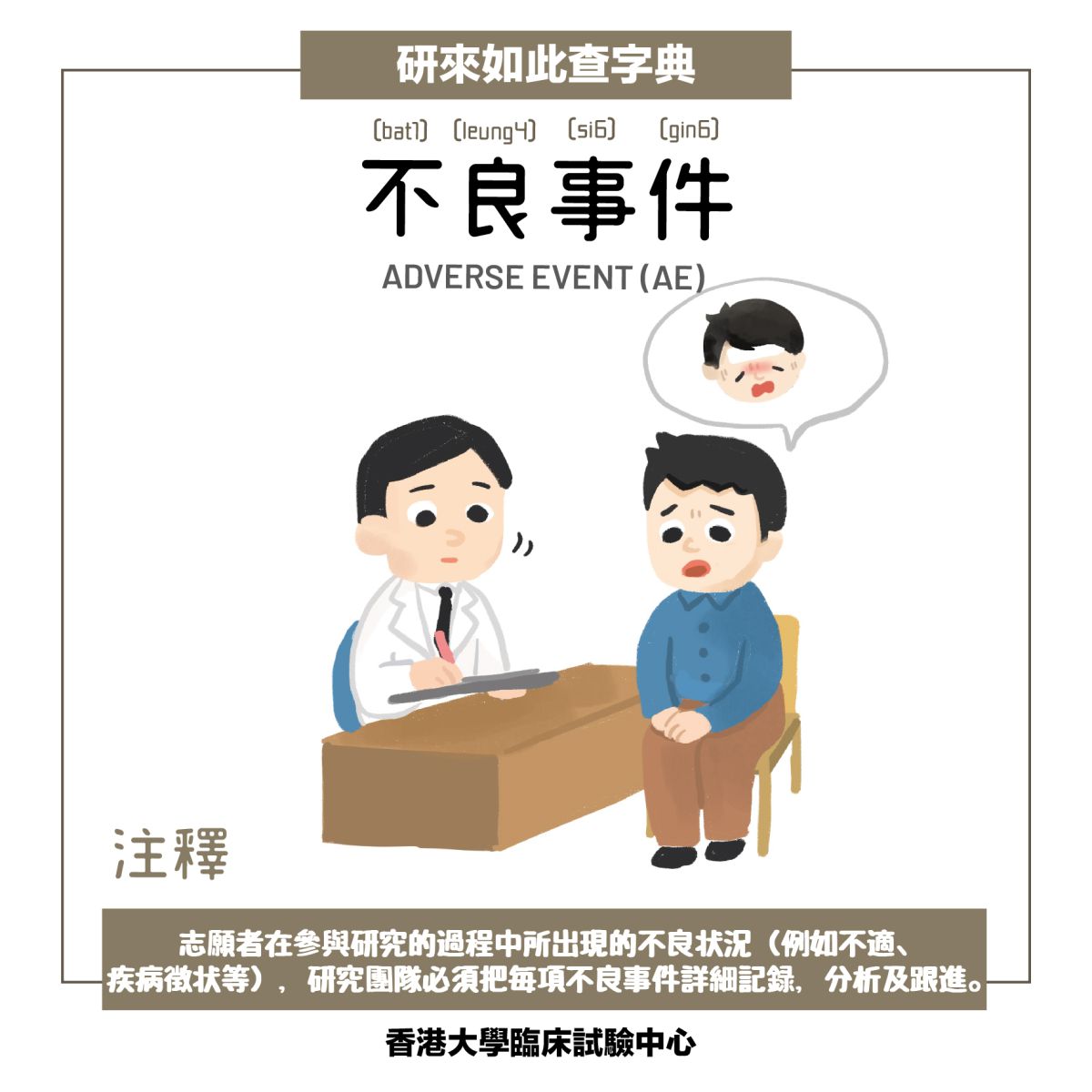
Study Intervention:
Any drug, medical device, medical method, or procedure aimed at treating, alleviating, diagnosing, or preventing diseases or medical conditions.
Adverse Event (AE):
An adverse condition that volunteers encounter during the research process (e.g., discomfort, symptoms of illness), regardless of whether the adverse event was expected or related to the research procedure or products. The research team must document, analyze, and follow up on each adverse event in detail.
[Centre Activity] HKU welcomes the selection of HKUMed by the HKSAR Government as the operator of the Greater Bay Area International Clinical Trial Institute
23/09/2024

[Centre Activity] HKU welcomes the selection of HKUMed by the HKSAR Government as the operator of the Greater Bay Area International Clinical Trial Institute
23/09/2024
The University of Hong Kong (HKU) welcomes the HKSAR Government's announcement today (23 September) on designating its LKS Faculty of Medicine (HKUMed) as the operator of the Greater Bay Area International Clinical Trial Institute (the GBAICTI). Located in the Hong Kong Park of the Hetao Shenzhen–Hong Kong Science and Technology Innovation Co-operation Zone, the GBAICTI is scheduled to begin operations in the fourth quarter of this year, with the aim of becoming an innovative clinical research platform with global influence to attract mainland and multinational pharmaceutical institutions.
[Study Completion] Phase 1 Clinical Trial of An Investigational Drug Developed to Treat Obesity Was Completed!
12/09/2024
.jpg)
[Study Completion] Phase 1 Clinical Trial of An Investigational Drug Developed to Treat Obesity Was Completed!
12/09/2024
[Centre Activity] HKUMedify – Clinical Exposure Programme 2024
14/08/2024
.jpg)
On August 1, 2024, 20 secondary students visited the HKU Phase 1 Clinical Trials as a part of the HKUMedify – Clinical Exposure Programme 2024. Through our introduction of the realistic clinical trials procedure, in-depth tour of the Phase 1 Centre, and their hands-on experience on simulating volunteer recruitment, we believe the session offers remarkable exposure on the importance of volunteer protection, scientific validity and data integrity.
[HKU-CTC Public Education Series] The Journey of Conducting Phase 1 Clinical Trials
17/07/2024

[HKU-CTC Public Education Series] The Journey of Conducting Phase 1 Clinical Trials
17/07/2024
The major difference between phase 1 clinical study and the later phases of clinical study is that its participants are usually healthy volunteers. Do you know the end-to-end procedure of preparing for a phase 1 study, and the steps that volunteers have to go through?
The video below will guide you through the journey of phase 1 clinical study, introducing you to all the details of this specific phase!
[HKU-CTC Public Education Series] Eligibility Criteria of Volunteers
10/07/2024
.jpg)
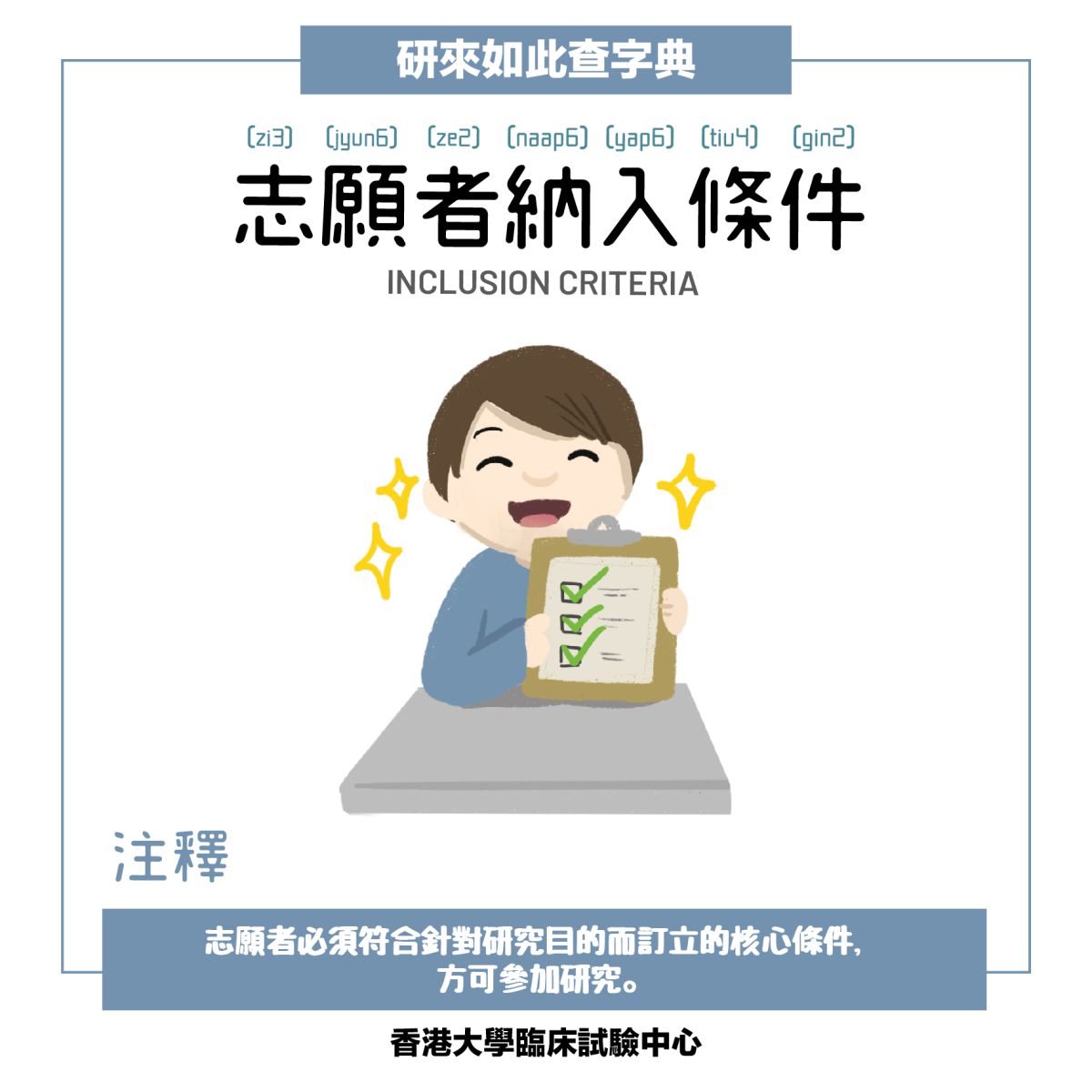
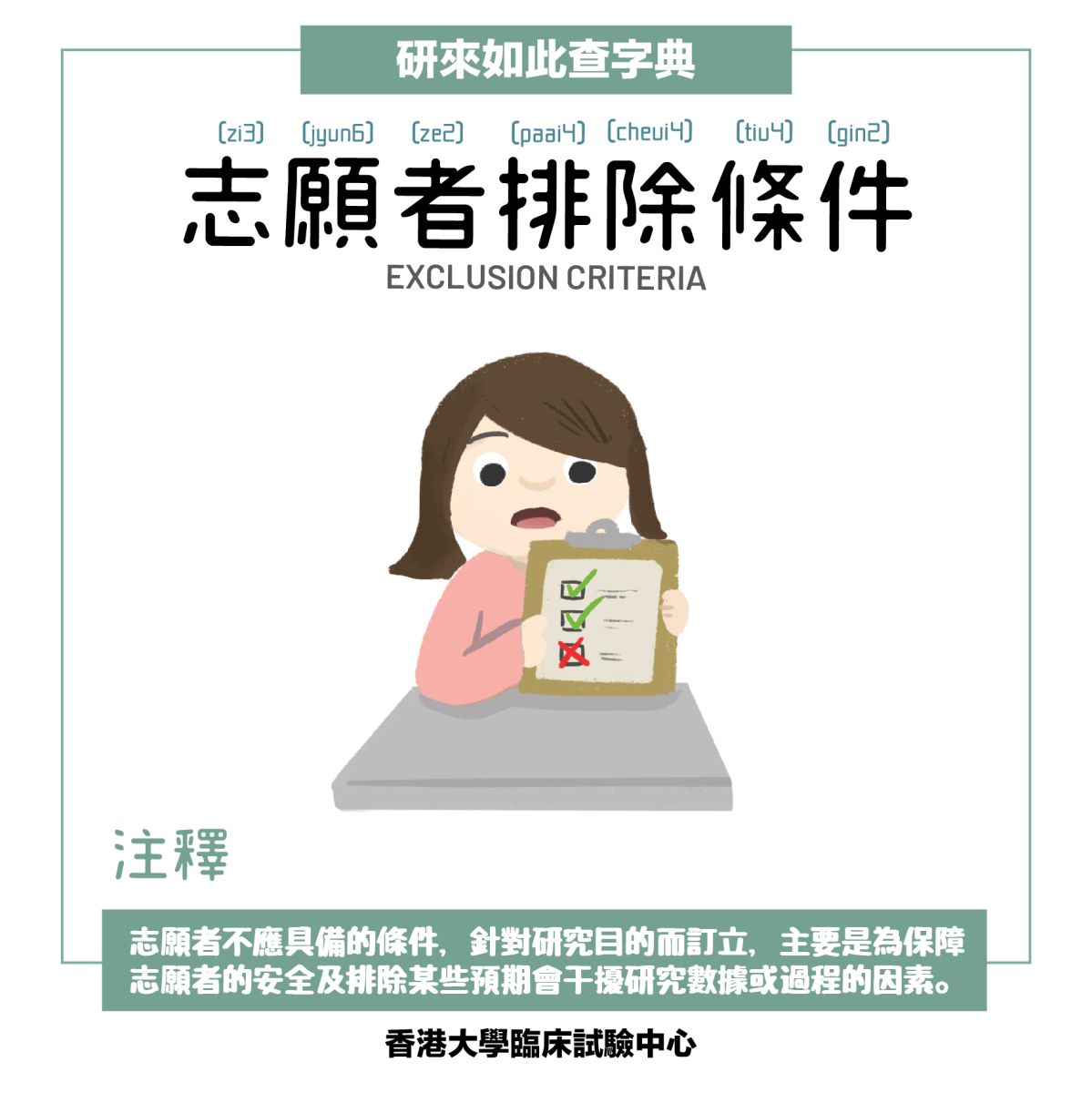
When you enrol in clinical trials, have you ever thought of why you might not be selected in some of them? Are you clear about the eligibility criteria of clinical trials? Read more about the eligibility, inclusion and exclusion criteria below!
Eligibility Criteria:
It includes a series of basic, medical, testing-related inclusion and exclusion conditions (such as age, height, weight, blood pressure, pre-existing medical conditions, etc.) to determine whether volunteers are suitable for participating in the study.
Inclusion Criteria:
Volunteers must meet the core requirements based on the research purpose. For instance, if the purpose of study is to obtain the safety data regarding a research drug being tested on Chinese subjects, the core criteria of volunteers is certainly the ethnicity.
Exclusion Criteria:
It refers to certain conditions that volunteers should not be having, and so will be excluded from the study. The criteria is established based on the study purpose, aiming at volunteer protection, and to eliminate any factors that may interfere with the research data or process. For instance, if a research drug may affect the eye function, even if a volunteer meets all the inclusion criteria, they may still be excluded from participating in the study if they have undergone corrective eye surgery.
[New Drug Journey] Tried and Tested
31/05/2024
Professor Leung Wai-Keung, the Chief Director of The University of Hong Kong Clinical Trials Centre (HKU-CTC) has shared insights in the latest HKU Bulletin issued in May 2024 on how HKU-CTC plays the role as a regional leader in the industry.
About one-quarter of drugs approved by the US Food and Drug Administration (FDA) are tested at HKU-CTC and Mainland firms are increasingly using its services. We are now preparing for higher growth in the face of new opportunities and stiffer competition.
Clinical Trial Column Article: 'Promote Scientific Research, Protect Public Health: Hong Kong Serving as A Hub for Clinical Trials Development Opportunities'
02/05/2024

Clinical Trial Column Article: 'Promote Scientific Research, Protect Public Health: Hong Kong Serving as A Hub for Clinical Trials Development Opportunities'
02/05/2024
Clinical Trial Column Article: 'Postmarketing Surveillance Trial Supports the Public to Make Informed Choices'
26/04/2024

Clinical Trial Column Article: 'Postmarketing Surveillance Trial Supports the Public to Make Informed Choices'
26/04/2024
[Trial Results Release] Ideal Findings Reflected from the Phase 1 Study on Biological Therapy for Severe Asthma Patients
22/04/2024

[Trial Results Release] Ideal Findings Reflected from the Phase 1 Study on Biological Therapy for Severe Asthma Patients
22/04/2024

Sincere gratitude to all the volunteers participating in the study related to biological therapies targeting eosinophilic asthma earlier in 2019 (CTC1843), leading by the University of Hong Kong Clinical Trials Centre (HKU-CTC). We are thrilled to announce that the research data of the Phase III Study has already been submitted to the National Medical Products Administration (NMPA) for evaluation. This will certainly bring hopes to severe asthma patients if approval is granted by the NMPA eventually!

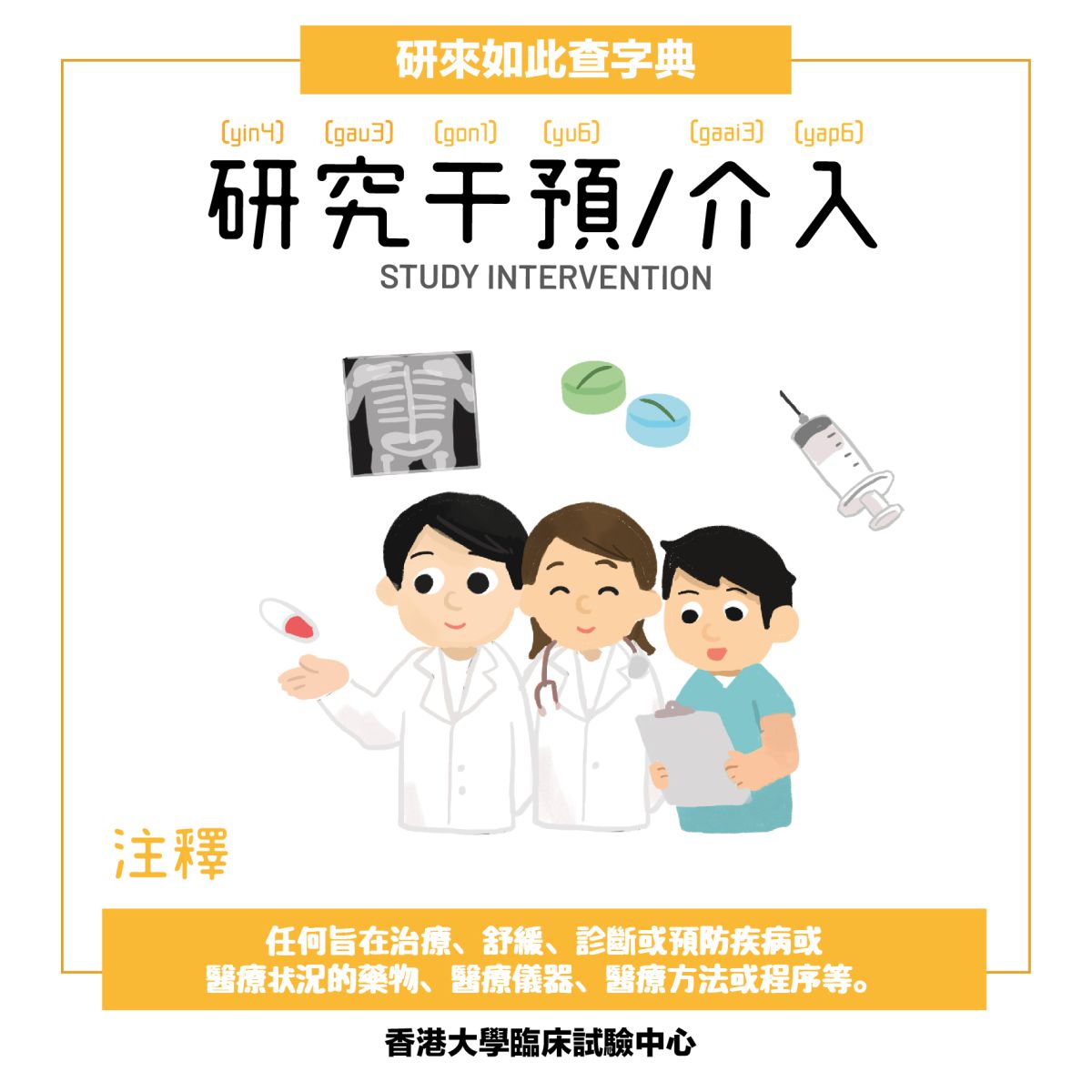

.jpg)
.jpg)
